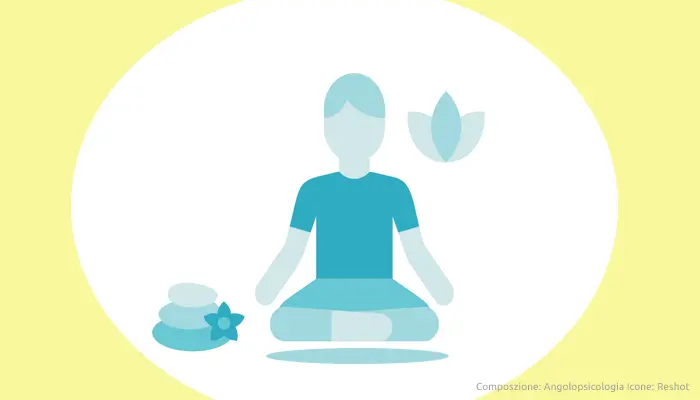
Transcendental Meditation is an ancient practice that we should rediscover, for our weel-being and the mental balance. Mindfulness Meditation requires full attention, which means that our mind is in a state of relaxation, but attentive, perfectly in tune with the “here and now”.
Through mindfulness we promote full knowledge and active presence, so our senses are amplified but we get rid of the need to intervene and judge what we are experiencing. We learn to flow. Therefore, systematically practicing transcendental meditation produces very positive changes in our daily lives, in the way we relate to others, we deal with setbacks and even in the way we relate to ourselves.
The inner changes generated by transcendental meditation are so powerful that many psychologists have included it in their arsenal of therapeutic techniques. In fact, a recent study conducted at the University of Oxford with 1258 patients concluded that “mindfulness therapy is as effective as antidepressants, but doesn’t have the same side effects”. These researchers also found that mindfulness is particularly effective in people who suffer of recurrent depression and, more interestingly, that is very effective in preventing it.
Now a team of Dutch researchers went a step further to show that mindfulness meditation not only acts on a psychological level, but also causes changes in the brain.
A more connected, relaxed and attentive brain
These neuroscientists conducted a systematic review of all studies previously realized on mindfulness meditation, to discover how this practice can change the brain in just 8 weeks.
They based the research on 30 previous studies that analyzed the functional and structural changes that occur in the brain when people began to practice meditation.
It has thus been found that studies reported changes both at the level of that activity, in the volume and the degree of neuronal connectivity in different areas of the brain:
– Prefrontal cortex, an area involved in decision making and emotional adjustment process.
– Amygdala, a structure that serves as protection against enviromental’s dangers and modulates emotional reactions.
– Hippocampus, a structure that plays a key role in learning and memory.
– Insula, a structure related to body representation, which also allows you become aware of emotions, feelings and desires.
– The anterior cingulate cortex, a very important area that is not only involved in the regulation of heart rate and blood pressure, but also in decision-making and empathy.
Changes found in the brain coincide with other experiments in which it was found that meditation helps regulate our emotional state, make better decisions, improve memory and boost concentration.
In fact, researchers at Harvard University and Justus-Liebig University, have studied this practice to understand its action in the brain. Therefore they concluded that mindfulness meditation acts through some fundamental aspects:
1. Helps people to have more control over their mind, helping them, for example, to develop full attention and ignore distractions.
2. Facilitates a greater awareness of the body, allowing people to perceive the small signals sent by the body and be able to cope with stress before it grows too much.
3. Stimulates emotional self-control, in particular the ability to deal with “negative” or unpleasant emotions, making sure that people are using more effectively their experiences.
4. Generates changes in the perception of the “ego”, as people abandon the idea that their personality is permanent and unchanging, which has a powerful therapeutic effect and promotes compassion towards ourselves.
However, perhaps the most interesting fact is that these changes occur after only eight weeks of systematic practice, which means you don’t have to close yourself in a Buddhist monastery to get all these benefits, it just needs to be consistent. In fact, you can start with these simple activities to transform yourself into a conscious person.
Mindful meditation is for everyone?
Despite the many benefits of mindful meditation some people may not feel comfortable with this practice. In fact, a study of the early 90s indicated that during the first few weeks of practice, some people may suffer loss of motivation or panic attacks.
Another recent study, held at the University of Washington, examined cases in which this type of meditation has been linked with increased anxiety, depersonalization and headaches. Why?
The problem is that mindfulness meditation involves a deep exploration of our “inner space”, and not all people are psychologically prepared for this. Be face to face with the suffering and resentment accumulated over the years, bodily tensions, critical thoughts and all those things hidden from consciousness, can be devastating.
So, when people are vulnerable or suffer enormous internal conflicts, they should practice a guided mindfulness meditation under psychological control. Sometimes, venturing into our inner world has some unexpected surprises that not everyone can deal with.
Sources:
Kuyken, W. et. Al. (2016) Efficacy of Mindfulness-Based Cognitive Therapy in Prevention of Depressive RelapseAn Individual Patient Data Meta-analysis From Randomized Trials. JAMA Psychiatry;73(6): 565-574.
Gotink, R. A. et. Al. (2016) 8-week Mindfulness Based Stress Reduction induces brain changes similar to traditional long-term meditation practice – A systematic review. Brain and Cognition; 108: 32–41.
Hölzel, B. K. et. Al. (2011) How Does Mindfulness Meditation Work? Proposing Mechanisms of Action From a Conceptual and Neural Perspective. Perspectives on Psychological Science; 6(6): 537-559.
Kathleen, M. et. Al. (2009) Mindfulness Meditation Research: Issues of Participant Screening, Safety Procedures, and Researcher Training. Adv Mind Body Med; 24(1): 20-30.
Shapiro, D. H. (1992) Adverse effects of meditation: a preliminary investigation of long-term meditators. Int J Psychosom; 39(1-4): 62-67.



